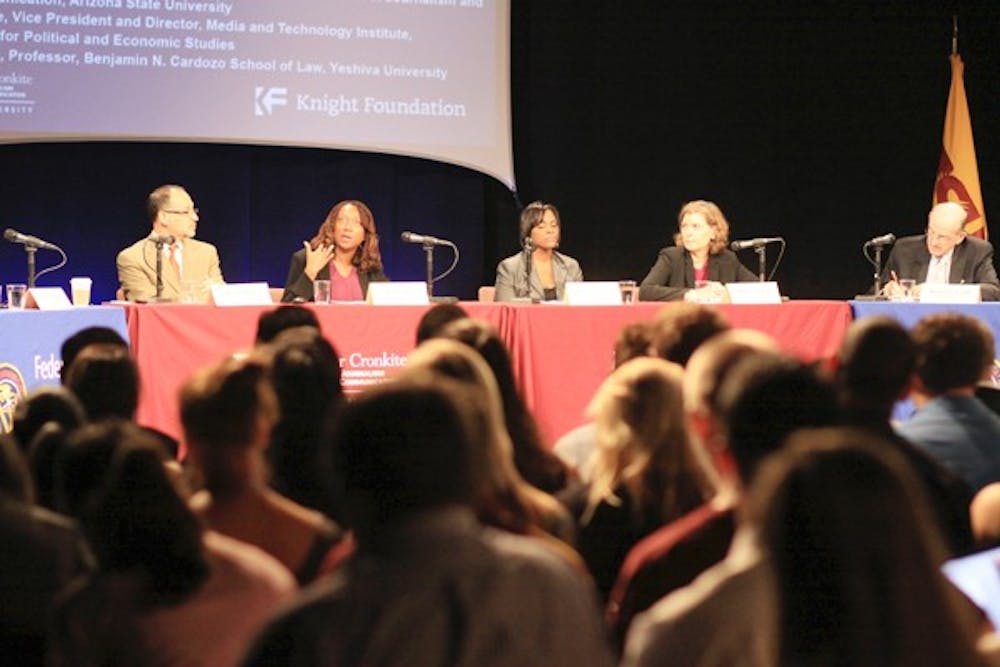The Federal Communications Commission held a nearly three hour-long public hearing at the Walter Cronkite School of Journalism and Mass Communication to discuss recent findings on the needs of local coverage in journalism.
The hearing consisted of three panels of media experts that focused on different topics: broadband access, broadcasting rights and new digital media. The topics related to the recent FCC report, “The Information Needs of Communities: The changing media landscape in a broadband age.”
The hearing was broadcast live by PBS Channel 8 as well as an online.
FCC Chairman Julius Genachowski discussed the threat posed by the decline in local news coverage.
“The less quality local reporting that we have, the less likely we are to learn,” Genachowski said. “In 1832, newspapers accounted for 90 percent of the weight carried by the US Postal Service. News was universal.”
Genachowski said as news media enters the digital age, news delivery will change but not at the expense of solid local coverage.
Universal broadband access is also becoming increasingly important.
One hundred million Americans don’t subscribe to broadband Internet at home, Genachowski said. Add this to the decline in local radio and television coverage and necessary information is not reaching the public.
FCC Commissioner Michael Copps acknowledged the importance of the Web but lamented over the decline of the newspaper industry.
“Thousands of reporters walk the streets in search of a job rather than walk the ‘beats’ in search of a story,” Copps said.
Copps said an online new media literacy curriculum must be developed for the general public to better understand and access all forms of media. He gave a 2012 deadline.
“Our country has a need to teach news literacy,” Copps said.
Copps emphasized media should work for the people and avoid “pay-for-play” segments, which allow companies to pay for news coverage.
Nicol Turner-Lee, vice president and director at the Media and Technology Institute, Joint Center for Political and Economic Studies, addressed the needs of impoverished citizens.
“More than 40 percent of African Americans are going to smart phones but news consumption is severely limited,” Turner-Lee said.
Lee raised the concern of informing lower-income communities about news literacy in the future.
Jonathan Blake, senior counsel of Covington & Burling, LLC, spoke on the panel concerning local broadcast coverage and had three recommendations for the FCC.
“Local TV stations are the principal source of local news that the public relies on,” Blake said. “TV stations must start putting out online disclosure, focusing on program segments about the local community and reducing pay for play practices.”
Although each speaker had a different objective to achieve during the FCC hearing, there was a common theme throughout: The media needs to work for the American people and this requires change.
“What we can take away from each of these panels is the importance of innovation,” Genachowski said.
Reach the reporter at april.fischer@asu.edu
Click here to subscribe to the daily State Press newsletter.





